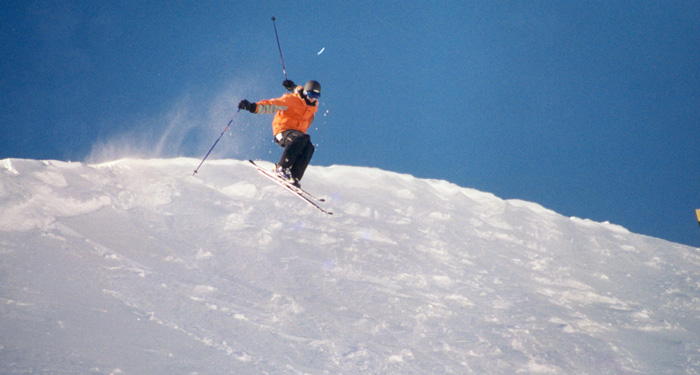Freestyle Skiing Insurance Cover

Providing you with a comprehensive freestyle skiing insurance is what we're here for. Make sure the cover includes your jumps, landings and a whole lot more. Don't leave the UK without this one in the bag!
Quick Quote for Insurance :
If you enjoy freestyle then you will know that it is high adrenaline and brings with it certain risks. It is essential that you ensure you have the right insurance. Here we explore what you need to know when looking for freestyle ski and snowboard insurance.
Why Need Ski Insurance At All?
It is staggering to learn that many Brits go skiing without taking out special winter sports cover. Many simply rely on their EHIC card and normal travel insurance.
EHIC is the European Health Insurance Card. It used to be called the E111 and is a reciprocal health agreement between European countries including Switzerland. This gives you access to state provided healthcare during a temporary stay in another European economic area. You can apply for EHIC through the EHIC online application form, this is free of charge, so do beware as unofficial websites will try and charge you.
You cannot however rely solely on this for a ski holiday let alone a holiday involving freestyle skiing or boarding.. The reason for this is that EHIC will not cover many of the things you may need should you have an accident on the slopes. So for example mountain rescue is not covered, nor is being flown back to the UK. Lost or stolen property is also not included. So for anyone skiing, EHIC alone may not cover you.
A normal travel insurance policy will also not cover you for a ski holiday. If you are unlucky enough to hurt yourself then those injuries can be quite serious. You may break a bone and need to be airlifted off the slopes which can run into thousands of pounds. Or you could cause a serious accident to another skier or boarder and be liable for their costs. Skiing and boarding are dangerous sports as is freestyle, you could endure life threatening injuries, so always make sure you take out specialist ski insurance.
Another consideration, if you are also skiing or boarding, is your equipment. The equipment you use for skiing and boarding is expensive. If someone steals your board or skis then that could set you back thousands of pounds. This may not be covered under most general travel insurance policies.
Freestyle
Freestyle skiing was born in the 1930’s when skiers started to introduce acrobatics into their skiing. Freestyle now involves skiers and boarders completing moguls, ramp aerials, rails, table tops and halfpipes. As you can imagine it is a high adrenaline sport. In fact freestyle skiing has been known as hot dog skiing because the first freestylers were nicknamed hot dogs. Before you embark on freestyle you would need to be a good skier or boarder. You would also need a good instructor to get you started on all those tricks.
Risks Associated With Freestyle
There is an ongoing debate about how dangerous freestyling is. Some people think it’s no more dangerous than normal skiing and boarding but others disagree. Over the years there have been some very high profile injuries to freestylers, which have even led to death. Suffice it to say it is viewed by insurance companies as a high risk activity.
Freestyle Insurance- What To Look For
Some insurance providers who happily supply insurance for ski racing and off piste simply do not cover freestyle so the first point of advice is that a general ski insurance cover will not cover you for freestyle. Check the list of activities covered or look for a specialist provider.
Cover Required
Do look for cover that gives you up to £10m for accidents, personal liability up to £1m if you can get it and cancellation cover as if this is your only ski trip you want to get money back if it is cancelled. Also ensure that the value of your equipment is covered should you lose your skis or board.
Non-professional /non competitive
Many insurer will insist that you are freestyling on a non-professional basis. It has to be a leisure activity and you will be expected not to be receiving any sponsorship or money above £200.
Safety
Most insurers will state that you need to follow all safety guidelines. Claims can be invalidated if you do not, so do be careful as you may invalidate your insurance.
Excess
A final tip is to really check the small print of any policy. What looks cheap may for example come with a high excess making a claim not cost effective. For example some cheaper policies set excess levels at £200, lose your gloves and the policy isn’t really worth it.
SOCIALISE